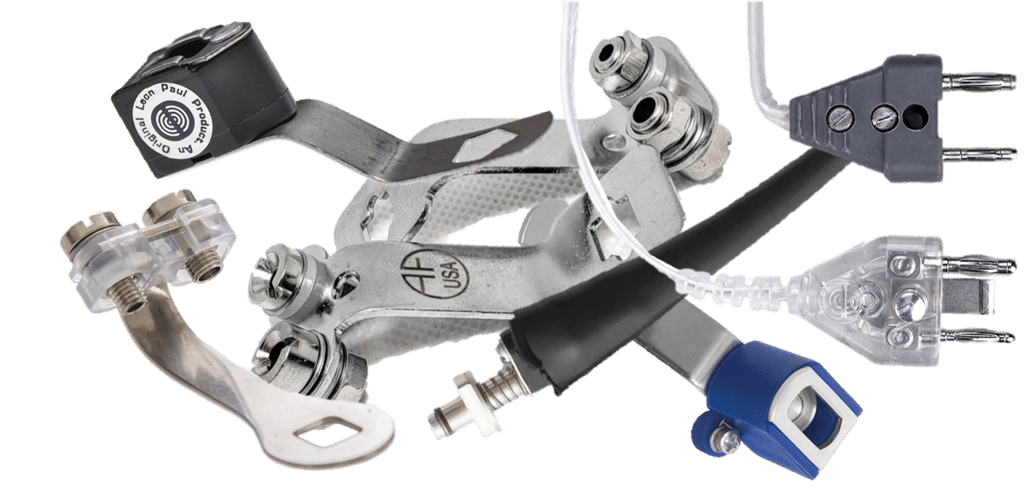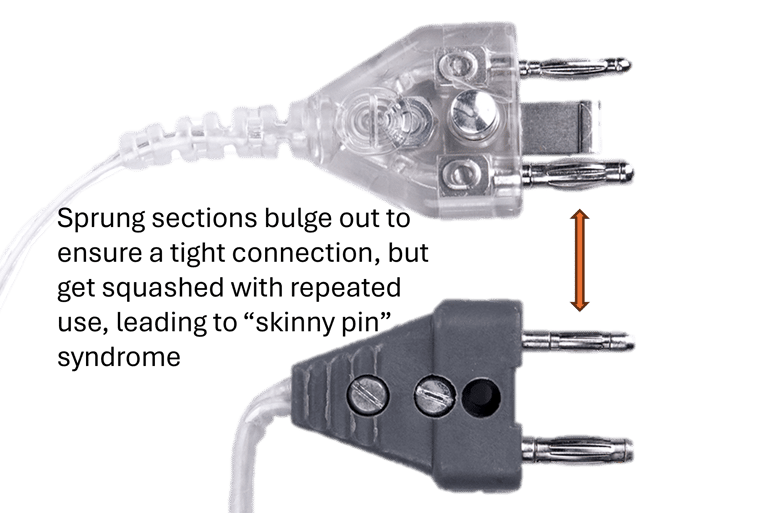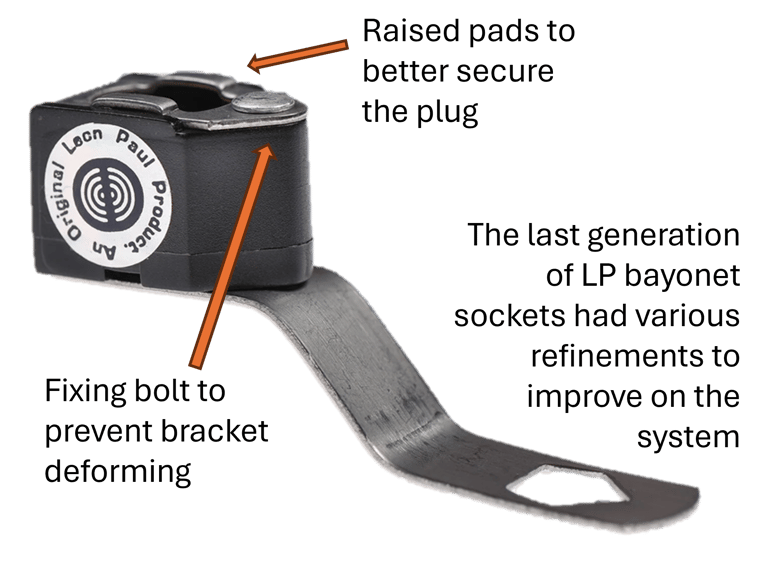2pin vs Bayonet Bodywires and Sockets: Which Is The Best Choice?
EQUIPMENTCOMPETITIONS
2/10/20254 min read


Understanding Bodywire & Socket Types
When it comes to choosing bodywires and sockets for foil, two primary types have been around for a while: the 2pin and the bayonet designs. While 2 pin now dominates the market, both designs serve the same purpose and there are some benefits to bayonet that need to be considered for a new club fencer looking to buy their first weapon and bodywire.
The Leon Paul Bayonet Design: Mechanically Superior, Or Just the LP effect?
The bayonet plug and socket design was chosen for its mechanical advantages. It makes strong secure electrical connections and the mechanism is engineered to be connected and disconnected without any real deterioration in the quality of the circuit made. From a fencing /social history point of view, the bayonet design (that is common to our club weapons and wires) was the standard design from Leon Paul since, well, since forever, certainly over 50 years The plug hasn't really changed at all over that time while the socket went through a series of improvements through the decades. (Some of the currently sold 'copies' still use older socket deigns) UK clubs and fencers historically had an easier route to buy from a UK based manufacturer, (and Leon Paul offered discounts and incentives) so in the UK it was normal that fencers and clubs had bayonet weapons and wires.
"The Rise" of 2pin Connections
However, the UK was a bit of an outlier. Most fencers and fencing clubs in the of the rest the world were more likely to be using the 2pin system and the big suppliers (Allstar/Uhlmann, PBT, Prieur etc.) predominantly made 2pin bodywires and weapon sockets.
In 2015 the FIE brought in a ban on bayonet connectors for their international competitions and after that, the landscape changed dramatically, pushing the 2pin connection to the forefront of the market. The official reason for the ban was that the bayonet system failed to "work perfectly in all situations" (Have a look at this blog post and video from Leon Paul about the ban.) There was some hint at the time that this was linked to the FIE's chosen wireless fencing solution, but sadly for the trusty old LP bayonet connector system, the ban remained even if the reasoning seemed a bit vague.
Despite its simpler plug design, which is in some ways less mechanically complex than the bayonet model, the 2pin plug does have some issues and to claim that it "works perfectly in all situations" could be seen as a stretch 🤔. The pins used by almost all the manufacturers are derived from designs common to the electronics/audio industry and while they make good secure electrical connections, they aren't really engineered to be connected and disconnected repeatedly (think about a HiFi separates system, how many times will a user connect and disconnect the speakers from the amplifier? Not 5-10 times a night, 2 nights a week 🤺😆) The result is that over time the pins of the bodywire (particularly cheaper low quality versions) tend to get "squished" and those skinny pins mean the connection becomes looser (higher resistance) and the scoring system starts to throw up false off-target lights. It's a repairable problem with a bit of poking about with a mini-screwdriver or eventually some new pins, but it is still a problem. You might even see fencers sucking/licking the pins of their bodywire to temporarily solve the issue during in a fight!
Which One Should You Choose?
The choice between 2pin and bayonet bodywires partly boils down to personal preference rather than specific fencing needs. 2Pin is now almost universal, and I would say that if you intend to start doing more than 1 or 2 local/regional competitions then choose 2pin connections. At this level, you're going to need to have your own supply of weapons (at least 2 for an open event in the UK) and it makes sense to use the most common system that everyone sells.
If you'll mainly fence in the club and rely on club kit as your "spares" for the odd competition perhaps once or twice a year, then bayonet is still a good way to go. Bear in mind that fewer brands produce new bayonet weapon sockets and since Leon Paul discontinued their version, the alternatives lack some of the later improvements that LP introduced so this might be a compromise.
If you're still not sure what to choose, then here are the pros and cons to consider.
Bayonet is probably a better design, particularly the later LP sockets & lasts longer.
(some of the club bodywire plugs and weapon sockets are from the 90s possibly earlier!)Bayonet is used in the club, so borrowing /sharing club weapons or bodywires is easier.
Leon Paul have discontinued their bayonet socket and it was the best design out there!
It'll get harder to find new (& good quality) bayonet fittings, so in a catastrophic "broken socket or dead bodywire" scenario at a competition, equipment sellers and armourers are going to be less & less likely to have replacement bayonet bits.
You can still find some fencers who are making the swap selling used bayonet plugs and sockets on eBay.
Your own foil with a 2-pin socket is less likely to get mixed up with club kit and used/broken by someone else.
If you might ever fence internationally you'll need to change to 2pin.
2 pin bodywires are slightly easier to repair (even if they do need more TLC and licking occasionally).
2 pin parts tend to be slightly cheaper. (and are easier to source)




